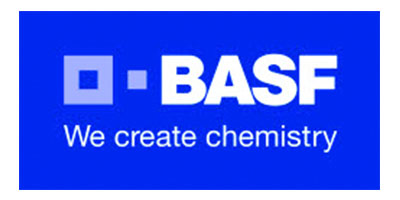Questions regarding this award? Contact AGRO Awards Committee Chair, Qing Li at qingl@hawaii.edu
PURPOSE
To recognize an active researcher working in North America for a chemical innovation that significantly enhances agricultural or veterinary pest management and productivity.
DESCRIPTION
This award consists of an honorarium of $5000 and a plaque.
The awardee to provide an in-person lecture on their work at the ACS Fall National Meeting, AGRO Division program.
ELIGIBILITY
Their nominee must be an active researcher working in North America who has demonstrated a chemical innovation that has significantly enhanced agricultural or veterinary pest management and productivity.
The award will be granted regardless of race, gender, age, religion, ethnicity, nationality, sexual orientation, gender expression, gender identity, presence of disabilities, and educational background. ACS membership is not required.
Self-nominations are not allowed.
DEADLINE
December 31 (Annual Review)
Award presented the following year at the ACS Fall National meeting, AGRO Division program. For example, nominations received by the end of 2025 would be considered for the 2026 awardee.
HOW TO APPLY
The nomination period is open from January 1 to December 31 annually.
Nominations should be combined file in pdf format submitted via the on-line form including:
- Nomination Letter from nominator (200 to 1000 word)
- Curriculum Vitae (5 page maximum)
- Optional Supporting Letters (maximum 2 letters of up to 500 words)
- One or two published manuscripts supporting the award nomination.
2024 Awardee
 Leah S. Riter earned her BS in Chemistry from the University of Florida and her PhD in Analytical Chemistry from Purdue University. During her graduate studies under the mentorship of R. Graham Cooks, she conducted foundational research in developing field-portable mass spectrometers. Subsequently, her postdoctoral research at Eli Lilly and Company focused on improving data quality in the formative years of proteomics. Leah then transitioned to the agricultural sector, joining Monsanto (now Bayer), where she focused on leveraging her expertise to address the unique challenges of plant proteomics and establishing the company’s first LC-MS/MS proteomics platform.
Leah S. Riter earned her BS in Chemistry from the University of Florida and her PhD in Analytical Chemistry from Purdue University. During her graduate studies under the mentorship of R. Graham Cooks, she conducted foundational research in developing field-portable mass spectrometers. Subsequently, her postdoctoral research at Eli Lilly and Company focused on improving data quality in the formative years of proteomics. Leah then transitioned to the agricultural sector, joining Monsanto (now Bayer), where she focused on leveraging her expertise to address the unique challenges of plant proteomics and establishing the company’s first LC-MS/MS proteomics platform.
She later transitioned to Environmental Safety, where her research over the last decade has focused on leading the development of innovative, simplified analytical methods that not only increase laboratory sustainability but also provide high throughput and accurate results for regulatory approvals of novel chemistries. One of Leah’s key achievements was spearheading the integration of the ACS 12 Principles of Green Chemistry, with a specific emphasis on reducing analytical test portions, eliminating undesirable solvents and derivatization, and minimizing sample cleanups in global analytical procedures.
Under Leah’s leadership over 40 modernized analytical methods encompassing 14 active ingredients were developed and validated. These streamlined and robust approaches are more easily transferred between global laboratories, creating a framework for harmonized sustainable environmental residue testing methods. This significantly improved the sustainability of laboratory phases across numerous studies, spanning 150 technical documents submitted to global regulatory agencies. This endeavor has created a more sustainable approach to bringing farmers products that address their key challenges including weed resistance, climate change, and population growth.
In her current role as Global Technology Pipeline Manager in Regulatory Scientific Affairs at Bayer Crop Science, Leah partners with regulatory and technical leaders and experts across the global agricultural scientific community to enable early evaluation of safety and proactively improve public awareness of new technologies.
Leah’s contributions have been recognized through various awards and honors, including the Distinguished Science Alumni Award from Purdue University College of Science, the Reviewer of Excellence Award from the Journal of Agricultural and Food Chemistry, and the Bayer Better Because of You Pinnacle Award. Leah is an American Chemical Society Fellow, an AGRO Fellow, and a Bayer Senior Fellow. She has also collaborated with scientists in 15 organizations in the agrochemical community across government, academic, and industrial sectors to author or co-author over 50 manuscripts, external posters, and presentations.
Past Awardees
2023
Kevin G. Meyer, Corteva Agrisciences, Indianapolis, Indiana
2022
Joel Coats, Iowa State University, Ames, Iowa
2021
Jeffrey Bloomquist, University of Florida, Gainesville, Florida
2020
Ke Dong, Michigan State University, East Lansing, Michigan
2019
Pamela G. Marrone, Marrone Bio Innovations, Davis, California
2018
Vincent L. Salgado, BASF, Research Triangle Park, North Carolina
2017
Qing X. Li, University of Hawai‘i at Mānoa
2016
Thomas M. Stevenson, DuPont Crop Protection
2015
Thomas C. Sparks, Dow AgroSciences, Indianapolis, Indiana
2014
Scott R. Yates, USDA-Agricultural Research Service, Riverside, California
2013
Jeanette M. Van Emon, US Environmental Protection Agency, Las Vegas, Nevada
2012
Steven J. Lehotay, USDA-Agricultural Research Service, Wyndmoor, Pennsylvania
